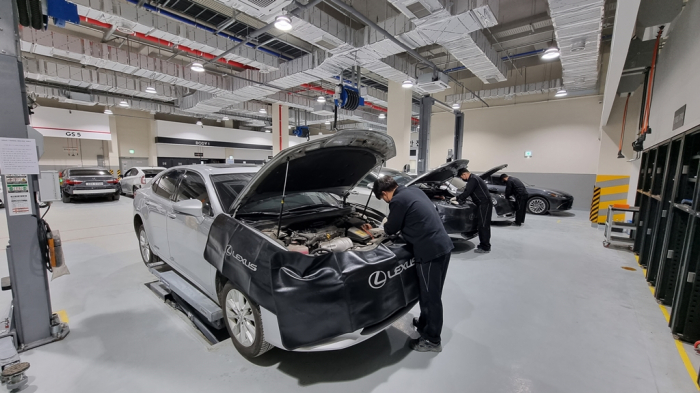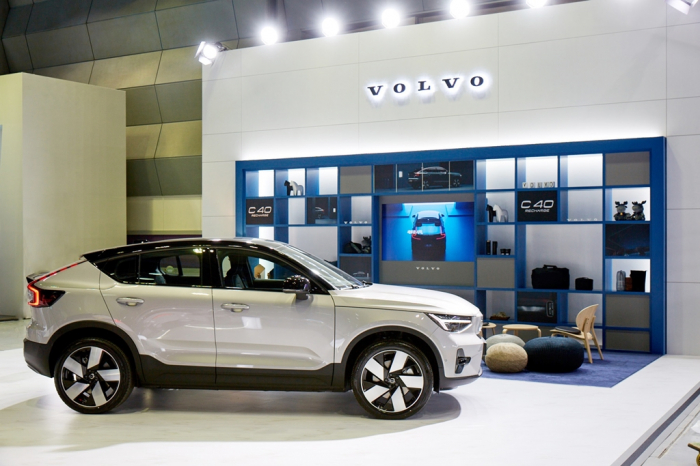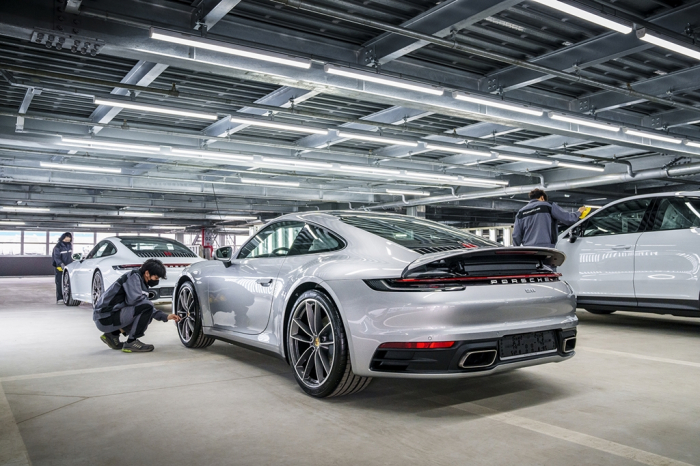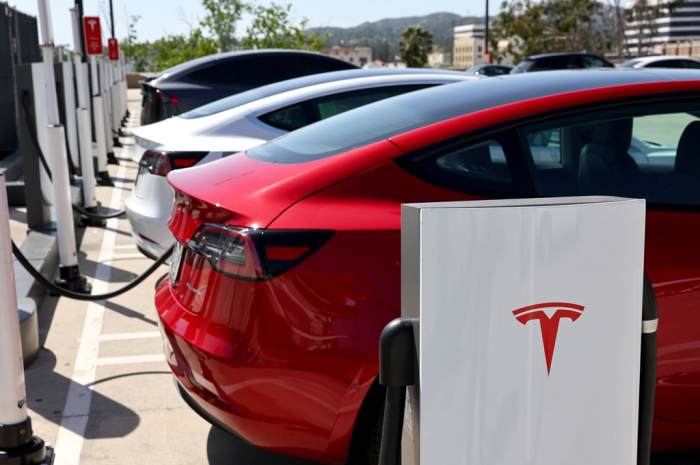Automobiles
Lexus, Volvo: Koreans' top picks among foreign brands in after-sales service
The KICSI survey showed German brands, traditionally Korean favorites, to rate relatively low
By Feb 20, 2023 (Gmt+09:00)
3
Min read
Most Read
Hankook Tire buys $1 bn Hanon Systems stake from Hahn & Co.


NPS to hike risky asset purchases under simplified allocation system


UAE to invest up to $1 bn in S.Korean ventures


Osstem to buy BrazilŌĆÖs No. 3 dental implant maker Implacil


US multifamily market challenges create investment opportunities



Lexus, the premium brand of Japanese carmaker Toyota Corp., offers the best after-sales service among imported cars in South Korea, followed by SwedenŌĆÖs Volvo and German sports car brand Porsche, a survey showed on Monday.
A poll of 1,100 drivers of KoreaŌĆÖs 15 best-selling imported vehicles also found that Tesla was the top pick when asked which new electric car they would prefer.┬Ā
Lexus scored 73.61 points out of 100 in the Korea Economic Daily Imported Car Service IndexŌĆÖs (KICSI) overall rating for the second half of 2022. The Japanese brand won the highest score in consumer satisfaction for its accurate pinpointing of problems and quick repair services.
ItŌĆÖs the first time Lexus has taken the top spot since the first half of 2020. Over the past two and a half years, the Japanese luxury car ranked second in the twice-a-year survey.
Volvo came in second with 75.3 points, up sharply from fifth in the previous survey. Porsche ranked third with 74.4 points, sliding from the top post six months earlier. Toyota came in fourth with 74.2 points.

The index was jointly developed by the economic daily, Kookmin UniversityŌĆÖs automobile service research institute, the Korea Consumer Agency, the Korea Insurance Development Institute and research firm Macromill Embrain Co. in June 2015.
The KICSI surveys 1,100 imported car drivers regarding their level of satisfaction with after-sales services provided by carmakers every six months. The index also evaluates insurance premiums, repair periods, the number of reported complaints and the level of service infrastructure.
LEXUS FIXES PROBLEMS FASTEST, PORSCHE SLOWEST
When a Lexus car was sent to its service center to fix problems, it took 7.5 days on average for repair ŌĆō the shortest period among the 15 brands surveyed.
Porsche took the longest time with 14.6 days.
ŌĆ£The lack of service centers and skilled maintenance personnel in Korea seems to be reflected in the number of repair days,ŌĆØ said Lee Hyung-jae, a Kookmin University professor and head of the evaluation committee.

German cars, traditionally among the favored brands by Korean consumers, were rated relatively low in the survey.
Mercedes-Benz slipped to the fifth in the overall ranking with 73.6 points from the third six months earlier. While Audi declined by two notches to the 12th, BMW fell by one notch to the 13th. Volkswagen and Peugeot shared the 14th place, virtually the lowest among the 15 brands.
Asked if they are willing to buy the same brand the next time they buy a new car, 80.5% of the respondents said yes, up from 74.7% in the previous survey.
Porsche topped the list with 94% of its owners saying they would want to buy the car again, followed by Lexus (93.8%), Volvo (90%), Tesla (90%) and Mercedes-Benz (86.7%).
TESLA TOP EV PLAYER IN KOREA
The survey found that for electric vehicles, Korean drivers want a new Tesla the most, followed by Mercedes-Benz.

Of the 1,100 respondents, 18.3% picked Tesla as their favorite electric vehicle. However, the percentage dropped from the previous surveyŌĆÖs 22.1%. Mercedes-Benz came in second with 17.3%, up from 16.6%.
Almost one in two imported car owners said they plan to buy an EV over the next five years.
Asked if they are willing to buy a new car online, 32.3% of them responded positively, up from 30.8% six months earlier.
Foreign cars have enjoyed growing popularity among Korean drivers in recent years.
According to the Korea Automobile Importers & Distributors Association (KAIDA), sales of imported vehicles, excluding Tesla, rose 50% to 28,222 units in November from the year-earlier period.
Tesla and other US electric vehicle makers have also enjoyed strong sales in Korea thanks to state subsidies.
Data from the Korea Automobile Manufacturers Association (KAMA) showed the Korean government provided 82.3 billion won ($62 million) in subsidies to imported EVs in the first half of 2022.
Write to Han-Shin Park, Il-Gu Kim and Hyung-Kyu Kim at phs@hankyung.com
In-Soo Nam edited this article.
More to Read
-
 Business & PoliticsKoreaŌĆÖs new EV subsidy plan favors Hyundai over Tesla, other imports
Business & PoliticsKoreaŌĆÖs new EV subsidy plan favors Hyundai over Tesla, other importsFeb 03, 2023 (Gmt+09:00)
4 Min read -

-
 Electric vehiclesTesla sweeps local EV subsidies as Korean firms at disadvantage in US
Electric vehiclesTesla sweeps local EV subsidies as Korean firms at disadvantage in USAug 22, 2022 (Gmt+09:00)
3 Min read -
 AutomobilesLuxury imported car sales growth at 5-yr high in S.Korea
AutomobilesLuxury imported car sales growth at 5-yr high in S.KoreaAug 17, 2021 (Gmt+09:00)
2 Min read -

Comment 0
LOG IN


